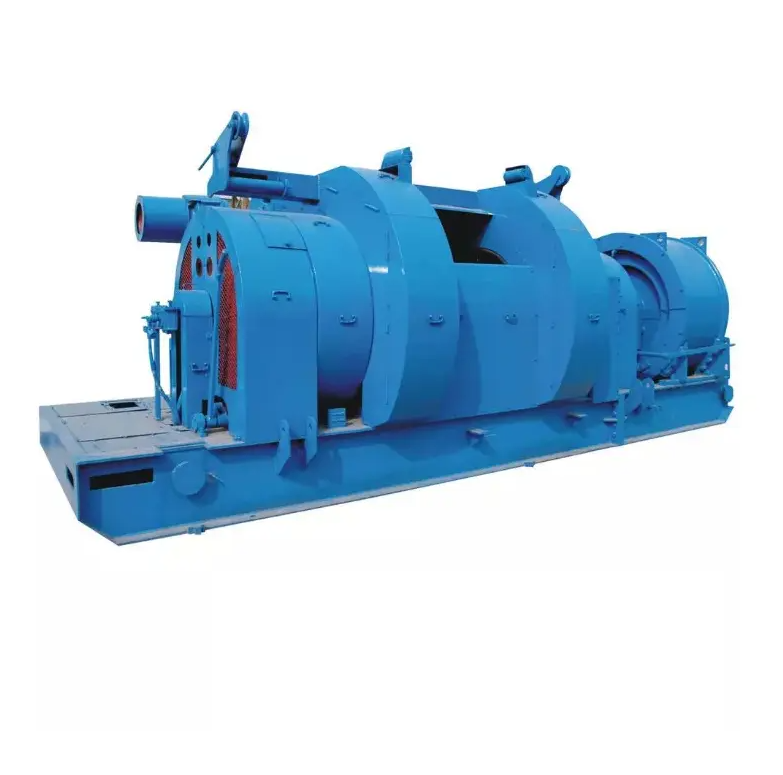What are drawworks on an oil rig?
Drawworks represent a fundamental component of any oil rig, serving as the powerhouse that facilitates the drilling process. Situated on the rig floor, drawworks are responsible for hoisting and lowering the drilling equipment into the wellbore. This critical machinery operates in conjunction with the drilling rig's power system to ensure seamless functionality throughout the drilling operation.
The Functionality of Drawworks
At its core, the primary function of drawworks is to control the raising and lowering of the drill string and casing into the wellbore. This process is essential for drilling operations, allowing for the extraction of oil and gas reserves from beneath the earth's surface. The drawworks system consists of various components, including the drum, brake system, and power source, all working together to achieve efficient drilling operations.

Components of Drawworks
1. Drum
The drum is a cylindrical device around which the drilling line is wound. As the drawworks rotate, the drum spools or releases the drilling line, enabling the movement of the drilling equipment. The design and size of the drum vary depending on the specific requirements of the drilling operation, with larger rigs typically featuring larger drums to accommodate heavier loads.
2. Brake System
Integral to the safe operation of drawworks is the brake system, which regulates the speed and tension of the drilling line. This system ensures precise control over the descent and ascent of the drill string, preventing sudden movements or accidents on the rig floor. Common types of brake systems include mechanical, pneumatic, and hydraulic brakes, each offering unique advantages based on the rig's specifications and operational demands.
3. Power Source
Drawworks are powered by various sources, including diesel engines, electric motors, or hydraulic systems. The choice of power source depends on factors such as rig size, location, and operational preferences. Electric drawworks have gained popularity in recent years due to their efficiency, reliability, and environmental benefits, offering a sustainable solution for modern drilling operations.
Operating Drawworks Safely
Safety is paramount in the oil and gas industry, particularly when operating heavy machinery such as drawworks. Rig personnel must undergo rigorous training to ensure they understand the proper procedures for operating and maintaining drawworks equipment. Regular inspections, maintenance checks, and adherence to safety protocols are essential to mitigate risks and prevent accidents on the rig floor.
Advancements in Drawworks Technology
The oil and gas industry continually strive for innovation and efficiency, driving advancements in drawworks technology. Modern drawworks are equipped with advanced features such as automated controls, real-time monitoring systems, and remote operation capabilities. These technological enhancements improve operational efficiency, reduce downtime, and enhance safety standards across drilling operations.
Conclusion
Oil Drilling Parts Equipment Drawwork play a pivotal role in the success of oil and gas drilling operations, providing the essential functionality required to extract valuable resources from beneath the earth's surface. Understanding the components and functionality of drawworks is crucial for ensuring safe and efficient drilling operations. By embracing advancements in technology and prioritizing safety protocols, the oil and gas industry can continue to maximize productivity and achieve sustainable growth in the exploration and production of energy resources.
411
0
0
All Comments (0)
If you are interested in sending in a Guest Blogger Submission,welcome to write for us!


Comments